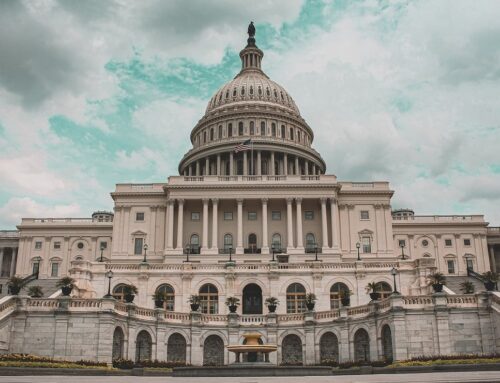PR campaign may have fuelled food study backlash, leaked document shows
April 11, 2025
A leaked document shows that vested interests may have been behind a “mud-slinging” PR campaign to discredit a landmark environment study, according to an investigation.
The Eat-Lancet Commission study, published in 2019, set out to answer the question: how can we feed the world’s growing population without causing catastrophic climate breakdown?
The report recommended that if global red meat eating was cut by 50%, the “planetary health diet” would provide nutritious food to all while tackling the harms caused by animal agriculture, which accounts for over 14% of all greenhouse gas emissions worldwide. It suggested individuals – particularly in wealthy countries – should increase their consumption of nuts, pulses and other plant-based foods while cutting meat and sugar from their diets.
It may have seemed like a fairly straightforward proposal but the backlash was ferocious, with researchers receiving personal threats and insults. Thousands of negative posts were shared on Twitter (now X), and more than 500 articles were published criticising the report.
A leaked document seen by the climate website DeSmog reveals that helping to fuel this backlash was a PR firm, Red Flag, which represented the Animal Agriculture Alliance, a meat and dairy industry coalition set up to protect the sector against “emerging threats”, and which has staff from Cargill and Smithfield Foods – two of the world’s five largest meat companies – on its board.
DeSmog has seen a document from the PR firm which states: “In the two weeks following publication of the Eat-Lancet report, this campaign’s messages have continued to demonstrate remarkable success. Key stories returned time and again in traditional and social media to reach major online influencers, particularly highlighting the radical nature of the Eat-Lancet diet and hypocrisy criticisms levelled at the Eat founders.”
As part of the campaign’s impact, in the weeks following publication, the document states that nearly half of the 1,315 articles about the Eat-Lancet report included Red Flag’s “campaign messages and quotes” and adds that 103 articles mentioned alleged hypocrisy of the group’s founders – “sparking a Twitter conversation that received over 1 million more views” than the top tweets posted by Eat about the report.
Red Flag’s document includes, as highlights of the campaign, an article in the UK’s Spectator magazine about plans “to change your diet by force”, and a number of social media posts claiming the report was “dangerous” and told “poor people to eat dirt”. The PR firm’s precise role in seeding or amplifying these posts, if any, is unknown.
“Targeted briefings and stakeholder activation ensured” that some framed the Eat-Lancet report, plus a subsequent report, “as radical and out of touch”. Briefings included an “advance press engagement” with the Institute of Economic Affairs, a UK libertarian thinktank, with hostile articles about the Eat-Lancet study quoting the group, which dismissed the report as an elitist attack on normal people.

In the year following Eat-Lancet’s publication, scientists involved in it were targeted online. In some cases, the backlash led to them withdrawing from press appearances to discuss the research and undermined their academic careers. There is no suggestion that Red Flag was involved in or responsible for these threats.
One author, Dr Marco Springmann, said he faced serious burnout after the “media storm” that went on for a year after publication. A senior researcher at the Environmental Change Institute at the University of Oxford and a professorial research fellow at the Institute for Global Health at University College London, he was repeatedly accused of bias for eating a plant-based diet.
“Usually I lead on two to three studies a year, but in the year following Eat-Lancet, I wasn’t able to even lead on one,” Springmann said.
Dr Line Gordon, another author of the study, said she was “overwhelmed” with “really nasty” comments in the immediate aftermath of its publication, and the backlash was “exhausting”.
“I was excited about the research we had done and how important it was and how much work we had put into it,” she said. “However, when we launched, I remember waking up in the morning and I’ve never been attacked in so many ways.”
And Dr Gunhild Stordalen, the chief executive of the environmental advocacy group Eat which, alongside the Wellcome Trust, funded the research, was one of those personally targeted, along with her husband, Petter Stordalen, a Norwegian property mogul who was pictured on Instagram eating a large burger. Other articles cited the couple’s high-carbon lifestyle, including owning a private jet.
A study of social media posts in the months after the report’s publication, published in the Lancet journal, found opponents of the research had dominated discussions and used “misinformation, conspiracy theories, and personal attacks” to discredit the work.
“Red Flag turned Eat-Lancet into a culture-war issue,” Jennifer Jacquet, a professor of environmental science and policy at the University of Miami and an expert on lobbying, told DeSmog. “Instead of having nuanced conversations about the data, Red Flag takes us back to mud slinging. This document is a portrait of what we’re up against – as people who care about the truth, about climate change, and about the future.”
Experts told DeSmog that the online backlash was one of the earliest examples of a culture war around dietary change that had become well-recognised in more recent years.
Victor Galaz, an associate professor at the Stockholm Resilience Center, Stockholm University, which was involved in shaping the Eat-Lancet report, studied the online response at the time. “Everyone was shocked by the volume and tone of the tweets: the aggressiveness and degree of lying, to put it very bluntly,” he said. “Climate change science has faced this kind of backlash for a while. But in this domain – diets and meat – that was new to people. Everyone was shocked.”
The researchers behind the report were clear that they welcomed legitimate critiques of its contents – it was not without criticisms in the academic world – but online articles and social media posts often overblew or did not engage with these nuanced debates.
“We are not perfect. It’s good to hear constructive criticism, that’s part of academic discourse,” said Springmann. “But if it gets into an ideological shouting match, we don’t get anywhere. I don’t do research to fight.”
While there is no suggestion that Red Flag was involved in personal attacks against the Eat-Lancet authors, Jacquet told DeSmog that the PR firm’s campaign had likely helped to make the report so divisive.
“The industry doesn’t make investments like this whimsically,” she said. “They know that this affects the tenor of the conversation. It’s a really illustrative example of how PR firms operate in the 21st century.”
Yet in spite of the online backlash the Eat-Lancet report has been one of the most influential studies of recent decades. It is among the papers most often cited by governments and in policy briefs across all topics, used in more than 600 such documents since its launch.
With the second Eat-Lancet report due out this year, Springmann, who joined the second research group despite having reservations, told DeSmog he hoped the new research could spark a more constructive conversation.
“It’s a big opportunity to put the debate back on a better track,” he said.
Search
RECENT PRESS RELEASES
Related Post




